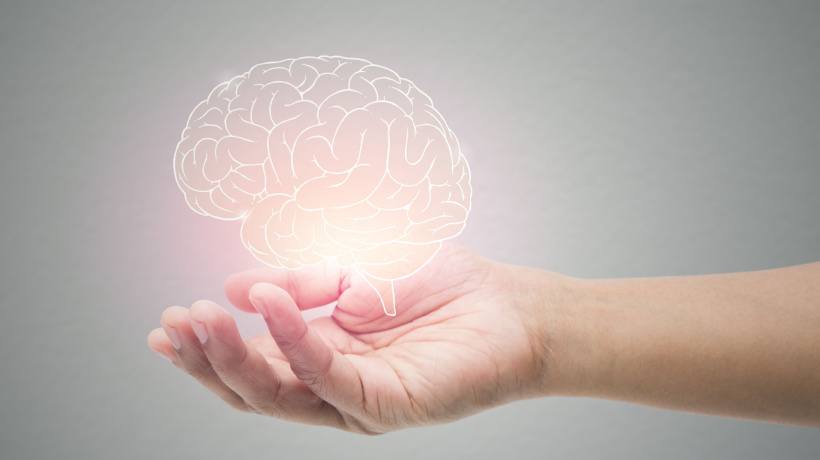Chronic Pain: Understanding, Managing, and Living with It
:max_bytes(150000):strip_icc()/iStock-545646362-58e3f5b05f9b58ef7e137d92.jpg)
What Is Chronic Pain?
Chronic pain is defined as pain that persists for longer than three months, often continuing long after the initial injury or illness has healed. Unlike acute pain, which serves as a warning signal for injury or illness, chronic pain has no clear cause and can last for months or even years. It can be a result of a variety of factors, including injury, disease, or a chronic condition.
Common Causes of Chronic Pain
Chronic pain can stem from several conditions, including:
- Arthritis: Chronic pain often arises from conditions like osteoarthritis or rheumatoid arthritis, which cause inflammation in the joints.
- Back Pain: Conditions like herniated discs, degenerative disc disease, or spinal stenosis can cause long-lasting back pain.
- Fibromyalgia: This condition causes widespread pain, fatigue, and tenderness in muscles, ligaments, and tendons.
- Neuropathic Pain: Damage to the nerves, as in the case of diabetic neuropathy or shingles, can cause chronic, burning pain.
While the causes can vary, the result is often a lasting and debilitating experience for many individuals.
The Psychological Impact of Chronic Pain
Chronic pain doesn’t just affect the body; it can take a heavy toll on a person’s mental and emotional health. Over time, the persistent nature of chronic pain can lead to psychological distress, making it harder to manage the pain itself.
Depression and Anxiety
It’s common for individuals with chronic pain to also suffer from depression and anxiety. The constant struggle with pain can lead to feelings of hopelessness, isolation, and sadness, which only worsen the pain experience. Chronic pain can change brain chemistry, making individuals more prone to these mental health issues.
Coping Mechanisms
Finding effective coping mechanisms is crucial for managing both the physical and emotional impact of chronic pain. Techniques like mindfulness meditation, deep breathing, and cognitive behavioral therapy (CBT) can help reduce stress and improve mental health. Support from family, friends, or mental health professionals is also vital in learning to cope with the challenges https://www.komrod. com/ brings.
Managing Chronic Pain
Effective pain management involves a combination of approaches tailored to each individual’s unique situation. There are many ways to alleviate chronic pain, ranging from medical treatments to lifestyle adjustments.
Medications for Chronic Pain
Medications are commonly used to manage chronic pain. These can include:
- Nonsteroidal anti-inflammatory drugs (NSAIDs): For conditions like arthritis or muscle strains, NSAIDs like ibuprofen help reduce inflammation and pain.
- Opioids: For severe pain, opioids may be prescribed, though they come with risks of dependency and side effects.
- Antidepressants and Anticonvulsants: These drugs are often used for neuropathic pain, such as that caused by diabetes or fibromyalgia.
- Topical treatments: Creams or patches containing lidocaine or capsaicin can be applied directly to the skin to relieve localized pain.
Physical Therapy
Physical therapy is one of the most effective ways to manage chronic pain. Therapists work with patients to strengthen muscles, improve flexibility, and increase range of motion. By targeting specific areas of the body affected by pain, physical therapy can help reduce discomfort and improve function.
Alternative Therapies
Some individuals with chronic pain seek alternative therapies, such as:
- Acupuncture: This ancient practice involves inserting thin needles into specific points on the body to relieve pain and promote healing.
- Chiropractic care: For those with musculoskeletal pain, chiropractic adjustments may provide relief by aligning the spine and improving mobility.
- Massage therapy: Gentle massage can reduce muscle tension and promote relaxation, easing chronic pain.
Lifestyle Changes to Alleviate Chronic Pain
Small changes to daily routines can help manage chronic pain. By focusing on a few lifestyle adjustments, individuals can experience significant improvements in their quality of life.
Diet and Nutrition
What you eat can play a significant role in managing chronic pain. Anti-inflammatory foods like leafy greens, fatty fish, nuts, and berries can help reduce inflammation in the body, which may ease pain. Avoiding processed foods and refined sugars can prevent exacerbating pain.
Exercise and Movement
While it might seem counterintuitive, regular physical activity is one of the best ways to reduce chronic pain. Exercise strengthens muscles, boosts endorphins, and improves overall flexibility. Low-impact activities such as swimming, yoga, or walking are excellent choices for those with chronic pain.
Sleep and Rest
Chronic pain often disrupts sleep, which can worsen the condition. A lack of restorative sleep leads to increased pain sensitivity and can negatively impact mood and energy levels. Developing a bedtime routine, creating a comfortable sleep environment, and practicing relaxation techniques can all help improve sleep quality and pain management.
Long-Term Effects of Chronic Pain
Living with chronic pain can have a significant impact on daily life, and the longer someone suffers from pain, the greater the potential for long-term consequences.
Disability and Reduced Mobility
Chronic pain can make it difficult to perform basic daily tasks, leading to physical limitations and even disability. Over time, people with chronic pain may find it harder to work, care for themselves, or engage in social activities, leading to decreased mobility and independence.
Social and Work Life
Chronic pain often affects social relationships and work life. It can be isolating, as individuals may avoid social gatherings or struggle to maintain their professional responsibilities. This can lead to feelings of loneliness and frustration, making it even harder to cope with pain.
Seeking Support for Chronic Pain
Support is critical when managing chronic pain. Whether it’s connecting with others who understand the experience or working with a healthcare team, seeking help is essential for better coping and recovery.
Support Groups
Support groups offer a safe space to share experiences, seek advice, and connect with others who are going through similar struggles. They can be a source of emotional support, encouragement, and practical tips for managing pain.
Talking to Your Doctor
Open communication with your healthcare provider is crucial for managing chronic pain effectively. Your doctor can help adjust your treatment plan, suggest new therapies, and provide guidance on pain management techniques.
Conclusion
Chronic pain is a challenging and complex condition that affects many aspects of life. However, with the right strategies, support systems, and lifestyle changes, it’s possible to manage pain and maintain a good quality of life. If you’re struggling with chronic pain, remember that there are multiple treatment options and resources available to help.





